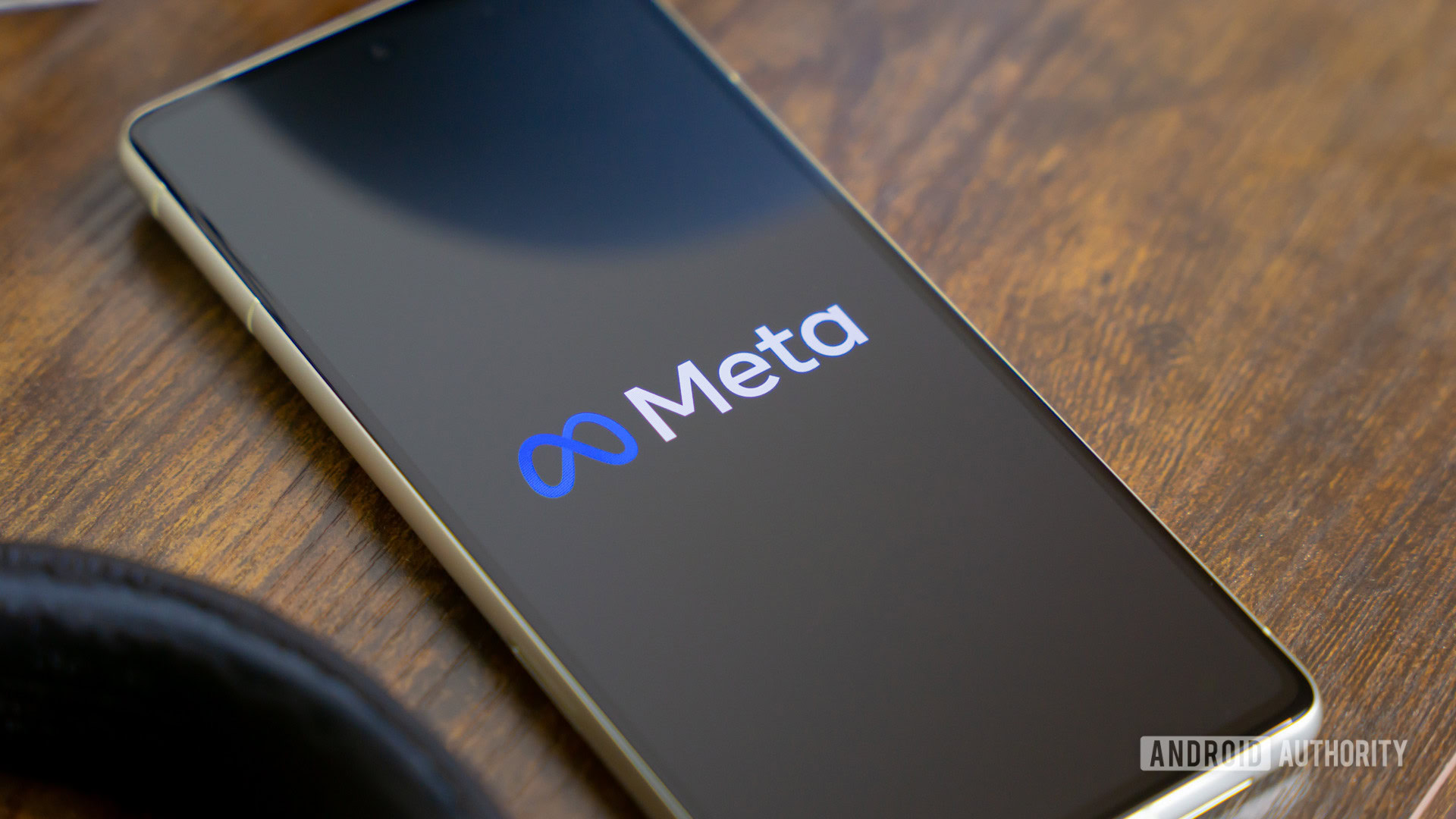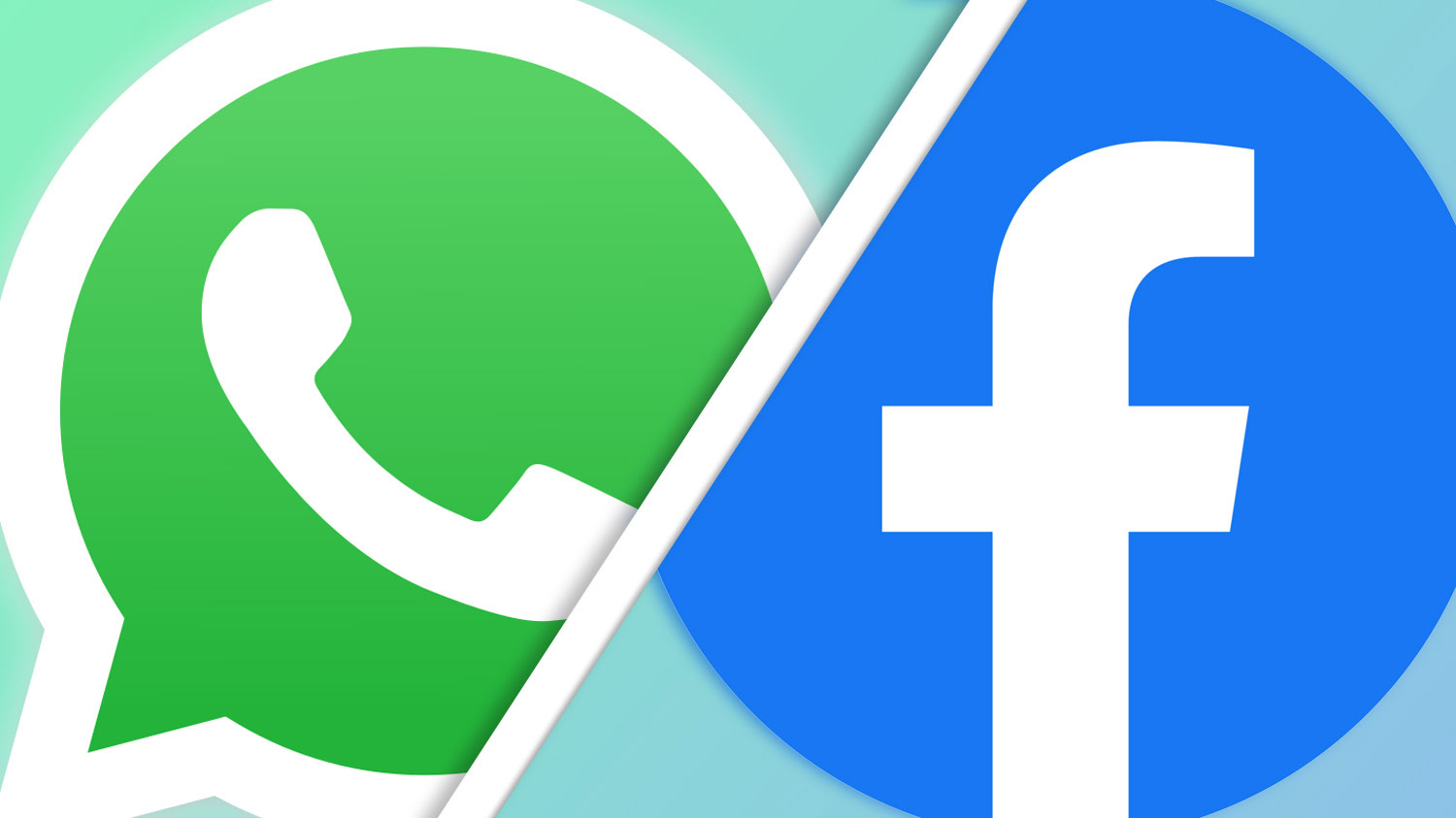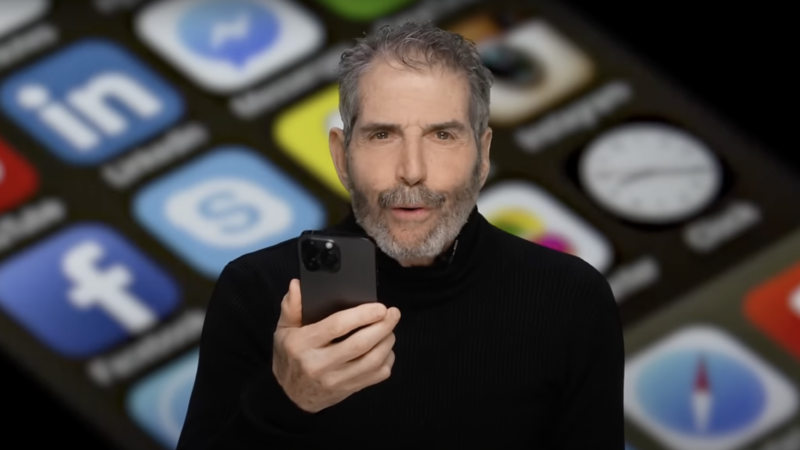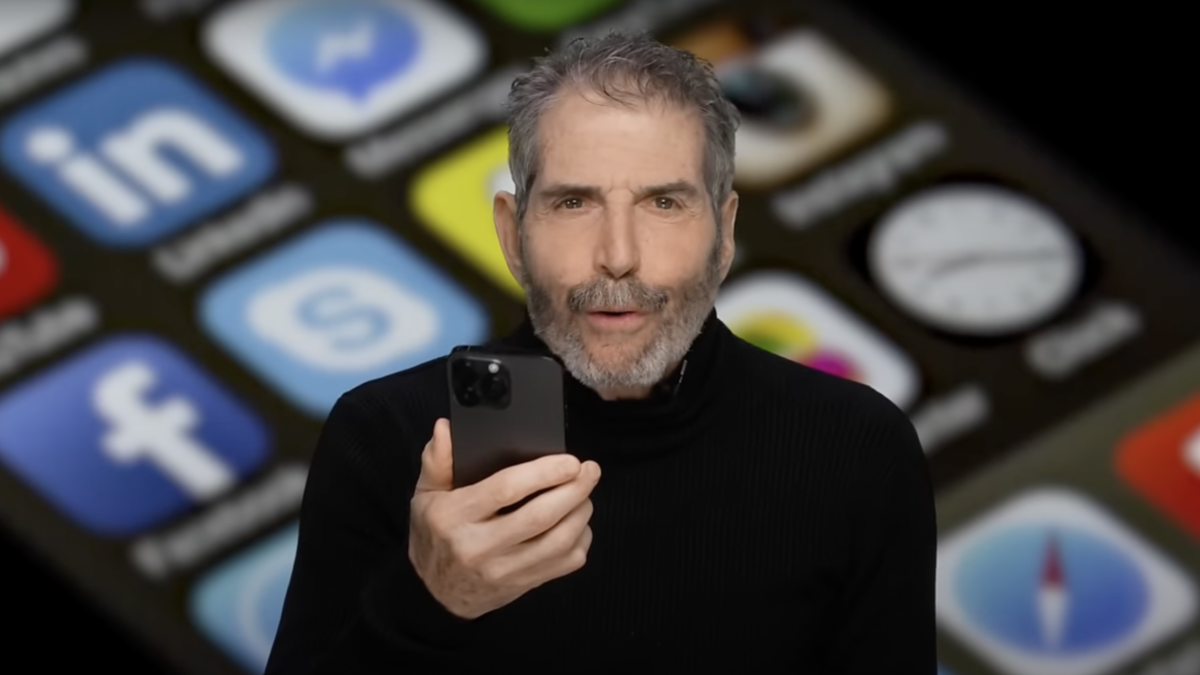Meta unveils it’s AITemplate GPU framework
Meta is announcing their new AITemplate framework for GPUs.
Read more ▶
The post Meta unveils it’s AITemplate GPU framework appeared first on SemiAccurate.
Meta is announcing their new AITemplate framework for GPUs.
Read more ▶
The post Meta unveils it’s AITemplate GPU framework appeared first on SemiAccurate.
The way some companies with big AI dreams are thinking, smartphone users want nothing more than to get advice from, be entertained by, and interact with virtual chatbots. Meta is betting so big on this concept that it just launched a major effort to let people design custom AI chatbots, tailored precisely to their preferences. But as firms like Meta try to zero-in on the kind of AI interactions that are most engaging, they’re also picking up a lot of lessons about what doesn’t work. And as Meta apparently learned the hard way, that includes chatbots based on celebrities.
Meta introduced its celeb chatbots last September with a total of 28 accounts, all featuring the likeness of a famous person and given specific personas. The whole thing was a bit weird, not even using actual celebrity names: you might interact with “Lorena” the travel expert, based on Padma Lakshmi, or chat with Charli D’Amelio’s “Coco” the dancer. At least those track tonally with the people they’re based on, but others felt like wild swings: Paris Hilton as “Amber” the detective “for solving whodunnits,” or Snoop Dogg not as the resident cannabis sommelier but “Dungeon Master,” ready to help plan your next tabletop adventure.

Fast-forward ten months, and Meta is taking these chatbots back behind the shed for some Old Yeller action. The Information reports that the Facebook and Instagram pages for all these bots went offline earlier this week. The company confirmed to the site it had discontinued the feature, highlighting what it picked up from the experience, explaining, “We took a lot of learnings from building them and Meta AI to understand how people can use AIs to connect and create in unique ways.”
Based on the timing, we’d certainly hope that many of those lessons became the foundation for Meta’s new AI Studio offering, where rather than choosing from all these pre-packaged disparate personas, users can take the time to craft a custom experience. Maybe that one won’t last, either, but sometimes you have to learn what doesn’t work before you can figure out what does.
Ctrl-Alt-Speech is a weekly podcast about the latest news in online speech, from Mike Masnick and Everything in Moderation‘s Ben Whitelaw.
Subscribe now on Apple Podcasts, Overcast, Spotify, Pocket Casts, YouTube, or your podcast app of choice — or go straight to the RSS feed.
In this week’s round-up of the latest news in online speech, content moderation and internet regulation, Mike and Ben cover:
This episode is brought to you with financial support from the Future of Online Trust & Safety Fund.
I'm trying to submit my app for review with publish_action.
I keep getting the following error:
"It looks like you haven't made any API requests to access content with the publish_actions permission in the last 30 days."
I'm publishing posts to the users' feed with Facebook SDK for Unity.:
FB.Feed(link: LinkToApp);
I've filled all the necessary fields.
I posted both from the Graph and from an iOS device and I still get the same error when I try to submit for review.
What is missing?
Ctrl-Alt-Speech is a weekly podcast about the latest news in online speech, from Mike Masnick and Everything in Moderation‘s Ben Whitelaw.
Subscribe now on Apple Podcasts, Overcast, Spotify, Pocket Casts, YouTube, or your podcast app of choice — or go straight to the RSS feed.
In this week’s round-up of the latest news in online speech, content moderation and internet regulation, Mike and Ben cover:
This episode is brought to you with financial support from the Future of Online Trust & Safety Fund.
Ctrl-Alt-Speech is a weekly podcast about the latest news in online speech, from Mike Masnick and Everything in Moderation‘s Ben Whitelaw.
Subscribe now on Apple Podcasts, Overcast, Spotify, Pocket Casts, YouTube, or your podcast app of choice — or go straight to the RSS feed.
In this week’s round-up of the latest news in online speech, content moderation and internet regulation, Mike and Ben cover:
This episode is brought to you with financial support from the Future of Online Trust & Safety Fund.
Ctrl-Alt-Speech is a weekly podcast about the latest news in online speech, from Mike Masnick and Everything in Moderation‘s Ben Whitelaw.
Subscribe now on Apple Podcasts, Overcast, Spotify, Pocket Casts, YouTube, or your podcast app of choice — or go straight to the RSS feed.
In this week’s round-up of the latest news in online speech, content moderation and internet regulation, Mike and Ben cover:
This episode is brought to you with financial support from the Future of Online Trust & Safety Fund.
If you’ve recently found yourself staring at unfamiliar buttons and prompts on your favorite Meta apps, you’re not alone. The recent rollout marks the debut of Meta AI’s latest large language model, Llama 3, promising more personalized interactions but also potentially more intrusive AI suggestions. Still, this is the closest it has ever been to ChatGPT.
But what if you’re not ready to embrace the AI revolution? What if you find the integration more cumbersome than helpful? Maybe you hate that the answers are not completely reliable. But is there any way to turn off the new Meta AI integration and regain some semblance of your pre-AI browsing experience?

Enlarge (credit: NurPhoto via Getty)
“Join Your Local Militia or III% Patriot Group,” a post urged the more than 650 members of a Facebook group called the Free American Army. Accompanied by the logo for the Three Percenters militia network and an image of a man in tactical gear holding a long rifle, the post continues: “Now more than ever. Support the American militia page.”
Other content and messaging in the group is similar. And despite the fact that Facebook bans paramilitary organizing and deemed the Three Percenters an “armed militia group" on its 2021 Dangerous Individuals and Organizations List, the post and group remained up until WIRED contacted Meta for comment about its existence.
Free American Army is just one of around 200 similar Facebook groups and profiles, most of which are still live, that anti-government and far-right extremists are using to coordinate local militia activity around the country.

The battle for AI supremacy between ChatGPT and Gemini just turned into a three-way race as Meta has unveiled a significantly upgraded version of its AI assistant. The new-and-improved Meta AI, powered by the cutting-edge Llama 3 language model, is boldly proclaimed by CEO Mark Zuckerberg to be “now the most intelligent AI assistant that you can freely use.”
Meta first introduced Meta AI last year, but it was limited to the US, and its capabilities were not on par with those of competitors like ChatGPT and Gemini. However, the integration of the Llama 3 model, also announced today, represents a seemingly quantum leap for Meta’s AI. Benchmark tests conducted by the company indicate that, with Llama 3 at its core, Meta AI has the potential to outperform other top-tier AI models, particularly in areas like translation, dialogue generation, and complex reasoning.
The overhauled Meta AI is now directly accessible through the search bars within Facebook, Instagram (DMs page), WhatsApp, and Messenger. Plus, you can access it at a new standalone website, meta.ai. It can search the web for you, provide recommendations for restaurants, flights, and more, or clarify complex concepts. On Facebook, Meta AI can also interact with your feed, allowing you to ask questions about content you see, like the best time to catch the Northern Lights after viewing a stunning photo of them.
I could even ask it for tailored content like fitness reels or comedy videos, with Meta AI curating a 5-video feed for me in those cases. Meta has included many prompts under the search bar on Facebook and Instagram to help us get the most out of Meta AI’s abilities. Thankfully, we can still use the search bars for regular searches for accounts and hashtags.
From what I could see so far, Meta AI’s answers are not as nuanced and detailed as what Gemini would give me for similar questions, but it could benefit from two key strengths. First, it’s seamlessly embedded within Meta’s popular apps — Facebook, Instagram, WhatsApp, and Messenger — giving their billions of users convenient access to the AI assistant. Secondly, Meta AI isn’t tied to one search engine; it openly uses both Google and Bing to process queries, removing potential bias toward either company’s algorithms.
One of the most intriguing parts of Meta AI is its Imagine image generator. This feature first appeared within WhatsApp a few months ago and allowed users to create AI-generated images based on text descriptions. Since then, it has expanded to Instagram and Facebook.
Starting today, WhatsApp beta users and those using Meta AI’s desktop website in the US can try out an even more advanced version of Imagine. This version generates images in real-time while you type, with the image updating as you add more details, really demonstrating how far generative AI has come.
Currently, Meta AI works in English and is rolling out to many countries outside the US, including Australia, Canada, Ghana, Jamaica, Malawi, New Zealand, Nigeria, Pakistan, Singapore, South Africa, Uganda, Zambia, and Zimbabwe, with more on the way.

The battle for AI supremacy between ChatGPT and Gemini just turned into a three-way race as Meta has unveiled a significantly upgraded version of its AI assistant. The new-and-improved Meta AI, powered by the cutting-edge Llama 3 language model, is boldly proclaimed by CEO Mark Zuckerberg to be “now the most intelligent AI assistant that you can freely use.”
Meta first introduced Meta AI last year, but it was limited to the US, and its capabilities were not on par with those of competitors like ChatGPT and Gemini. However, the integration of the Llama 3 model, also announced today, represents a seemingly quantum leap for Meta’s AI. Benchmark tests conducted by the company indicate that, with Llama 3 at its core, Meta AI has the potential to outperform other top-tier AI models, particularly in areas like translation, dialogue generation, and complex reasoning.
The overhauled Meta AI is now directly accessible through the search bars within Facebook, Instagram (DMs page), WhatsApp, and Messenger. Plus, you can access it at a new standalone website, meta.ai. It can search the web for you, provide recommendations for restaurants, flights, and more, or clarify complex concepts. On Facebook, Meta AI can also interact with your feed, allowing you to ask questions about content you see, like the best time to catch the Northern Lights after viewing a stunning photo of them.
I could even ask it for tailored content like fitness reels or comedy videos, with Meta AI curating a 5-video feed for me in those cases. Meta has included many prompts under the search bar on Facebook and Instagram to help us get the most out of Meta AI’s abilities. Thankfully, we can still use the search bars for regular searches for accounts and hashtags.
From what I could see so far, Meta AI’s answers are not as nuanced and detailed as what Gemini would give me for similar questions, but it could benefit from two key strengths. First, it’s seamlessly embedded within Meta’s popular apps — Facebook, Instagram, WhatsApp, and Messenger — giving their billions of users convenient access to the AI assistant. Secondly, Meta AI isn’t tied to one search engine; it openly uses both Google and Bing to process queries, removing potential bias toward either company’s algorithms.
One of the most intriguing parts of Meta AI is its Imagine image generator. This feature first appeared within WhatsApp a few months ago and allowed users to create AI-generated images based on text descriptions. Since then, it has expanded to Instagram and Facebook.
Starting today, WhatsApp beta users and those using Meta AI’s desktop website in the US can try out an even more advanced version of Imagine. This version generates images in real-time while you type, with the image updating as you add more details, really demonstrating how far generative AI has come.
Currently, Meta AI works in English and is rolling out to many countries outside the US, including Australia, Canada, Ghana, Jamaica, Malawi, New Zealand, Nigeria, Pakistan, Singapore, South Africa, Uganda, Zambia, and Zimbabwe, with more on the way.

Meta keep emailing me to tell me my Oculus account is going to be deleted on March 29th. It's only today, seeing other people talking about it, that it occurs to me: this is not personal. Meta is perhaps going to delete your Oculus account on March 29th as well, if you have one.
You've got until that date to migrate your account, and if you don't you'll lose all your purchases.
With Facebook being one of the oldest social media platforms around, we are all bound to find some old posts that embarrass us. Therefore, you might want to turn over a new leaf and remove all your posts, especially when applying for a new job. Here’s how to delete all your Facebook posts without deleting your account, allowing you to start fresh. Additionally, before deleting these posts, you may be interested in downloading them using a third-party app.
If you’re using a desktop computer, open your Facebook profile page and click the three-dot button on the right-hand side to open menu options.
If you encounter a technical error doing the Activity Log method, there is another way to delete Facebook posts via the Manage Posts function.
The process is pretty much the same using the mobile app.
Deleting all your Facebook posts is as simple as that. It’s almost like you are a whole new person.
Archiving a post is a way to hide it from your profile while keeping its likes and comments. In other words, only you will be able to see a post you have archived. You can Archive photos by clicking on the Archive button instead of the Recycle Bin button at the Manage Posts page.
Yes, photos in an album you created and shared with others can be archived or deleted. However, for albums other people created and was shared with you as a contributor, your only option is to leave it. Any photos you’ve shared in that album will remain there unless you delete it from your account.
No, posts can only be archived or deleted by the person who created them. However, you can remove the tag, so the post doesn’t appear on your profile.
Read more of this story at Slashdot.

10 years ago to the day, Facebook announced that it was purchasing WhatsApp for $19.6 billion — that’s billion, with a B. The news rocked the online world for several reasons, not the least of which being Facebook’s iffy privacy and data handling reputation, plus its propensity to use ads anywhere, which contradicted with WhatsApp’s core principles and what everyone had loved about it so far.
The online media and communities weren’t clement about that purchase either, criticizing the sale, scrutinizing Facebook’s promises, and generally being pessimistic about WhatsApp’s future. As a WhatsApp user myself and a forced Facebook user (my friend created my profile before we graduated college so we could all keep in touch, and I barely used it), I felt conflicted by all of it. I wanted to move away from WhatsApp right then, but I also had all of my friends and family on it. Even some businesses too. I was sure not everyone would be as bothered as I was by the ownership transfer and, even if I could convince my close ones, I couldn’t convince an entire nation and culture.
Using WhatsApp for the first few months after that purchase felt 'dirty.'
Using WhatsApp for the first few months after that purchase felt “dirty,” but the sale slowly faded into the back of my mind. Every few months, something would come up that would remind me of Facebook’s involvement with WhatsApp, I’d feel icky again, and then just learn to ignore it. Even when WhatsApp changed its policies, I clicked on “Agree,” with all the resentment and resignation of the world.
Then WhatsApp’s co-founders left Facebook, and Cambridge Analytica happened, followed by many other Facebook scandals. With a bit of distance, and knowing I objectively didn’t like where things were at but was still sticking around on WhatsApp, I slowly realized that my relationship with the service transcends any other relationship I have with other apps and messaging apps on my phone.
My relationship with WhatsApp transcends any other app on my phone; it is engrained in my real life.
WhatsApp isn’t just WhatsApp to me, it’s the way I communicate with everyone I love. It has photos and voice notes from my dead grandma, my early flirtations with my now-husband, and every high and low I went through during those hellish 2019-2021 years while my country’s economy collapsed, COVID happened, half of Beirut blew up, I shut down my pharmacy, and I moved to France. WhatsApp was, whether I wanted to or not, engrained in every aspect of my real life. You can’t fabricate an emotion like that with an app.
With time, too, I noticed that WhatsApp didn’t get worse — at least not as bad as other social networks and messengers did. Until this very day, the service is still, mostly, ad-free, unlike the scourge of Instagram (Facebook’s other big social purchase). There’s no algorithmic feed either. You control your contacts, who can reach out to you, who sees you and your photos, which WhatsApp communities, channels, and businesses you communicate with, which groups can invite you in, and so on. You get end-to-end encryption across multiple devices too. All in all, 10 years later, it feels like WhatsApp has escaped the worst of Facebook.
10 years later, it feels like WhatsApp has escaped the worst of Facebook.
And in a way, Facebook itself has recently been on a bit of a redemption arc. Oh, I’m not even remotely convinced it’s all in good faith, but it was fun to see people rooting for Threads over X, for example, or falling for the Meta Quest 3 over the Apple Vision Pro. Look how far we’ve fallen that we’re choosing the least bad of two very bad options. But I digress.
I guess what I’m trying to say is that despite everything that felt iffy, 10 years ago, about this deal, it didn’t turn out as bad as we had all collectively imagined back in 2014.
Today, Telegram and Signal are right there, but they play that supporting actor role in my life, and I wouldn’t bat an eyelash if I lost access to them this very instant. WhatsApp on the other hand? It’s how I talk to my parents and aunt back home and that, my friends, says it all.

10 years ago to the day, Facebook announced that it was purchasing WhatsApp for $19.6 billion — that’s billion, with a B. The news rocked the online world for several reasons, not the least of which being Facebook’s iffy privacy and data handling reputation, plus its propensity to use ads anywhere, which contradicted with WhatsApp’s core principles and what everyone had loved about it so far.
The online media and communities weren’t clement about that purchase either, criticizing the sale, scrutinizing Facebook’s promises, and generally being pessimistic about WhatsApp’s future. As a WhatsApp user myself and a forced Facebook user (my friend created my profile before we graduated college so we could all keep in touch, and I barely used it), I felt conflicted by all of it. I wanted to move away from WhatsApp right then, but I also had all of my friends and family on it. Even some businesses too. I was sure not everyone would be as bothered as I was by the ownership transfer and, even if I could convince my close ones, I couldn’t convince an entire nation and culture.
Using WhatsApp for the first few months after that purchase felt 'dirty.'
Using WhatsApp for the first few months after that purchase felt “dirty,” but the sale slowly faded into the back of my mind. Every few months, something would come up that would remind me of Facebook’s involvement with WhatsApp, I’d feel icky again, and then just learn to ignore it. Even when WhatsApp changed its policies, I clicked on “Agree,” with all the resentment and resignation of the world.
Then WhatsApp’s co-founders left Facebook, and Cambridge Analytica happened, followed by many other Facebook scandals. With a bit of distance, and knowing I objectively didn’t like where things were at but was still sticking around on WhatsApp, I slowly realized that my relationship with the service transcends any other relationship I have with other apps and messaging apps on my phone.
My relationship with WhatsApp transcends any other app on my phone; it is engrained in my real life.
WhatsApp isn’t just WhatsApp to me, it’s the way I communicate with everyone I love. It has photos and voice notes from my dead grandma, my early flirtations with my now-husband, and every high and low I went through during those hellish 2019-2021 years while my country’s economy collapsed, COVID happened, half of Beirut blew up, I shut down my pharmacy, and I moved to France. WhatsApp was, whether I wanted to or not, engrained in every aspect of my real life. You can’t fabricate an emotion like that with an app.
With time, too, I noticed that WhatsApp didn’t get worse — at least not as bad as other social networks and messengers did. Until this very day, the service is still, mostly, ad-free, unlike the scourge of Instagram (Facebook’s other big social purchase). There’s no algorithmic feed either. You control your contacts, who can reach out to you, who sees you and your photos, which WhatsApp communities, channels, and businesses you communicate with, which groups can invite you in, and so on. You get end-to-end encryption across multiple devices too. All in all, 10 years later, it feels like WhatsApp has escaped the worst of Facebook.
10 years later, it feels like WhatsApp has escaped the worst of Facebook.
And in a way, Facebook itself has recently been on a bit of a redemption arc. Oh, I’m not even remotely convinced it’s all in good faith, but it was fun to see people rooting for Threads over X, for example, or falling for the Meta Quest 3 over the Apple Vision Pro. Look how far we’ve fallen that we’re choosing the least bad of two very bad options. But I digress.
I guess what I’m trying to say is that despite everything that felt iffy, 10 years ago, about this deal, it didn’t turn out as bad as we had all collectively imagined back in 2014.
Today, Telegram and Signal are right there, but they play that supporting actor role in my life, and I wouldn’t bat an eyelash if I lost access to them this very instant. WhatsApp on the other hand? It’s how I talk to my parents and aunt back home and that, my friends, says it all.
I first arrived in Silicon Valley in 1977 — 45 years ago. I was 24 years old and had accepted a Stanford fellowship paying $2,575 for the academic year. My on-campus apartment rent was $175 per month and a year later I’d buy my first Palo Alto house for $57,000 (sold 21 years later for $990,000). It was an exciting time to be living and working in Silicon Valley. And it still is. We’re right now in a period of economic confusion and reflection when many of the loudest voices have little to no sense of history. Well my old brain is crammed with history and I’m here to tell you that the current situation — despite the news coverage — is no big deal. This, too, shall pass.
But what about the layoffs at Meta and Twitter? Elon is crazy! WTF???
On February 25, 1981, Apple Computer CEO Mike Scott fired 40 percent of the company’s engineering staff at a time when sales were doubling month-over-month and the company had no budgets because there was no way they could spend money fast enough to need budgets. Scott, who left Apple, himself, two months later, said he fired all those engineers and support staff because he feared four year-old Apple was becoming “complacent.” People were gone by the end of the day, when Scott held a companywide beer bust.
Cataclysmic change is par for the course in both startup culture and high tech. If there is going to be a next wave the previous wave has to die. Above is a chart I found from 2015 that shows the Silicon Valley economy starting in 1976. If we were to update this chart there would be a more recent boom, post social media, that I would label Artificial Intelligence, not to be confused with the late-1980s Artificial Intelligence bust that we’ve all forgotten about.
That original AI debacle is significant because it was caused by over-enthusiasm. The idea of AI made perfect sense in 1987 — the exact same sense it makes today — but nobody really understood how much computing power would be required to make those dreams come true. If AI was impractical in 1987 but is practical today thanks to Moore’s Law, how bad was our aim, exactly?
Our aim was pathetic and fortunes were lost on that pathos.
Let’s do the math. The original AI funding boom began in the late 1980s. Implicit in the VC model at the time was it taking no more than two Moore’s Law cycles from initiating the wave to launching real products. If VCs were funding companies in 1987, they expected big things from one or more of those startups by 1990. Moore’s Law said the cost of computing drops by 50 percent every 18 months so that implies that VCs in 1987 and the founders who were pitching to those VCs thought that AI would be technically practical by 1990 at which point a basic unit of computing power that cost one 1987 dollar would cost 25 cents in 1990.
IF AI is indeed economically practical today (some people still aren’t convinced that it is) mid-2021 marked 23 complete Moore’s Law cycles, meaning the computing power that cost $1 in 1987 had been reduced to $0.00000006.
Venture capitalists who bet several hundred million 1987 dollars that AI would have some chance of being economically practical at $0.25, were wrong by 48 million X.
It’s easy to look back, make these calculations, and feel smug, but that’s not even close to my point. My point is that the very VCs who lost all that money are generally zillionaires today. They kept betting on what was, for the most part, a growing tech economy.
The most important part of being a successful venture capitalist in the last 40 years has been maintaining some dry powder for future investments and staying in the game.
I could easily argue that AI in 1987 looks very similar to the metaverse in 2021. Meta (formerly Facebook) is losing $10 billion per year betting on its metaverse strategy. Recent layoffs suggest that Meta CEO Mark Zuckerberg is reevaluating his expected timeline for success.
How long can Zuckerberg afford to continue dumping billions into metaverse development? Given Meta’s corporate structure giving Zuckerberg personal voting control of the company, that question comes down to how long Meta will have enough excess cashflow to cover the costs. IF Meta is cutting its burn rate in half with these layoffs (a good argument I think) Zuckerberg can continue spending at this rate… forever. This assumes Meta continues to make lots of money with current products, but it also identifies Zuck as probably the only person in the history of tech who could make this bet pay off IF the meta verse actually becomes the next big thing.
It will be interesting to see what happens with Meta. Zuck might just run out of energy or — more likely — some competing next big thing may come along to distract him. I’m not sure it really matters much.
What does matter is that in high tech change is the norm, flux is nearly constant, and what we are seeing in the current weakness is probably change that should have happened years ago but for all the cheap money.
Silicon Valley relies on startups for ideas and growth. Startups require cheap office space and engineers looking for work. Boom and bust is not a bad thing for Silicon Valley it’s how Silicon Valley evolves.
This too shall pass.
The post What about the layoffs at Meta and Twitter? Elon is crazy! WTF??? first appeared on I, Cringely.

The government and private companies spy on us.
My former employee, Naomi Brockwell, has become a privacy specialist. She advises people on how to protect their privacy.
In my new video, she tells me I should delete most of my apps on my phone.
I push back. I like that Google knows where I am and can recommend a "restaurant near me." I like that my Shell app lets me buy gas (almost) without getting out of the car.
I don't like that government gathers information about me via my phone, but so far, so what?
Brockwell tells me I'm being dumb because I don't know which government will get that data in the future.
Looking at my phone, she tells me, "You've given location permission, microphone permission. You have so many apps!"
She says I should delete most of them, starting with Google Chrome.
"This is a terrible app for privacy. Google Chrome is notorious for collecting every single thing that they can about you…[and] broadcasting that to thousands of people…auctioning off your eyeballs. It's not just advertisers collecting this information. Thousands of shell companies, shady companies of data brokers also collect it and in turn sell it."
Instead of Google, she recommends using a browser called Brave. It's just as good, she says, but it doesn't collect all the information that Chrome does. It's slightly faster, too, because it doesn't slow down to load ads.
Then she says, "Delete Google Maps."
"But I need Google Maps!"
"You don't." She replies, "You have an iPhone. You have Apple Maps…. Apple is better when it comes to privacy…. Apple at least tries to anonymize your data."
Instead of Gmail, she recommends more private alternatives, like Proton Mail or Tuta.
"There are many others." She points out, "The difference between them is that every email going into your inbox for Gmail is being analyzed, scanned, it's being added to a profile about you."
But I don't care. Nothing beats Google's convenience. It remembers my credit cards and passwords. It fills things in automatically. I tried Brave browser but, after a week, switched back to Google. I like that Google knows me.
Brockwell says that I could import my credit cards and passwords to Brave and autofill there, too.
"I do understand the trade-off," she adds. "But email is so personal. It's private correspondence about everything in your life. I think we should use companies that don't read our emails. Using those services is also a vote for privacy, giving a market signal that we think privacy is important. That's the only way we're going to get more privacy."
She also warns that even apps like WhatsApp, which I thought were private, aren't as private as we think.
"WhatsApp is end-to-end encrypted and better than standard SMS. But it collects a lot of data about you and shares it with its parent company, Facebook. It's nowhere near as private as an app like Signal."
She notices my Shell app and suggests I delete it.
Opening the app's "privacy nutrition label," something I never bother reading, she points out that I give Shell "your purchase history, your contact information, physical address, email address, your name, phone number, your product interaction, purchase history, search history, user ID, product interaction, crash data, performance data, precise location, course location."
The list goes on. No wonder I don't read it.
She says, "The first step before downloading an app, take a look at their permissions, see what information they're collecting."
I'm just not going to bother.
But she did convince me to delete some apps, pointing out that if I want the app later, I can always reinstall it.
"We think that we need an app for every interaction we do with a business. We don't realize what we give up as a result."
"They already have all my data. What's the point of going private now?" I ask.
"Privacy comes down to choice," She replies. "It's not that I want everything that I do to remain private. It's that I deserve to have the right to selectively reveal to the world what I want them to see. Currently, that's not the world."
COPYRIGHT 2023 BY JFS PRODUCTIONS INC.
The post Government Is Snooping on Your Phone appeared first on Reason.com.
